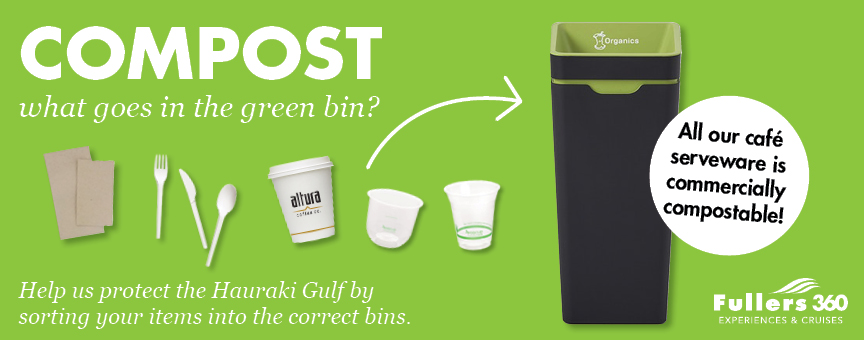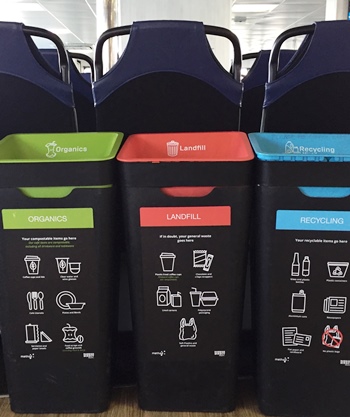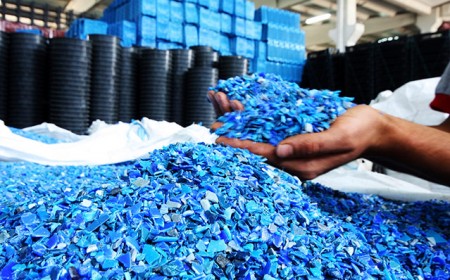Fullers360 committed to commercial composting
Fullers360, Auckland's leading ferry operator, has launched a commercial composting programme across all its fleet of vessels and is implementing a comprehensive communications programme to educate staff and customers on what goes in each bin.
Fullers360 connects locals and visitors to the Hauraki Gulf, employing around 350 staff, with offices in numerous locations, including downtown Auckland and Waiheke Island.
The opportunity
Many Fullers360 vessels have onboard cafes. The single item that contributes the most waste are single use coffee cups, which are in fact made of commercially compostable material, explains Sustainability Advisor, Lucinda Clark.
This presented an opportunity to reduce waste to landfill by finding a more sustainable end of life the multitude of coffee cups.
"We began working with our waste management partners, Rubbish Direct, and bin provider partners, Method Recycling to find suitable solutions for our particular business model. The result are bin stations, including a landfill bin, recycling bin and organics bin.
"We expected to see a significant decrease in the amount we send to landfill as we shift our non-recyclable waste to compostable."
Communicating with staff and customers
Lucinda says they are communicating with customers through a range of channels to get them on board with our bin stations and how to use them correctly:
- The first initial customer communications were released to announce the range of eco-friendly products that the cafes use are compostable and are able to go in the new organic bins, most of which are sourced from Eco Ware packaging.
- Social media platforms such as Instagram and Facebook have been used to inform customers of the shift towards environmentally friendly products and the organics bins.
- New signage has been distributed to the vessels to further educate customers of what is able to go in the organic bins, with the help of boat crew as to where visually the posters would be most effective.
- Media screens on vessels which would typically display general information about the islands we visit and emergency procedures have been utilised to show how to use the bins correctly.
- Automated announcements encourage customers to dispose of waste in the the correct bins.
- Rubbish and recycling guides were handed out to crew to educate them about the shift towards compostable products in the onboard cafés as well as what happens to the content of the organic’s bins once it arrives at the commercial operating facility. This also helps to allow crew to educate customers on any questions that may come up regarding compost.
Results
"We have been working closing with our waste management partner Rubbish Direct to monitor the shift from landfill to compost," says Lucinda.
"It's estimated that 85% of the waste generated goes in the organic bins rather than landfill - 80% of waste produced is from compostable packing from the onboard café and 5% food waste.
"During peak season and with increased customer awareness, we have found the organics bins are filling up faster than expected, showing positive progress and creating the need for extra organics disposal."
This initiative aligns with Business Commitment 13 - businesses have waste reduction and management programmes.



